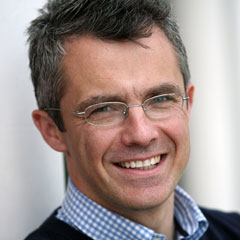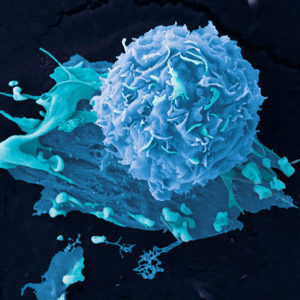Molecular Pathology and Diagnosis of Cancer (Virtual)
23–27 November 2020
Virtual course
Interactive training in current molecular methods for cancer diagnosis
Summary
Due to the ongoing situation with Covid-19, this course will be delivered in a virtual format.
A joint initiative of the Wellcome Genome Campus and the Royal College of Pathologists Interspecialty Committee on Molecular Pathology, this course is aimed primarily at trainee pathologists or haematologists. The programme introduces participants to the rapidly evolving field of the genomics and molecular diagnosis of cancer. Clinical scientists in the field of molecular diagnosis are also encouraged to apply.
The course will consists of lectures, discussions, virtual laboratory sessions, and computer-based exercises covering:
- current diagnostic methodologies
- bioinformatic tools for analysis of DNA sequencing data
In addition, the course will host a number of leading national and international speakers who will give seminars on the molecular pathology of a several common cancers, including:
- breast cancer
- colorectal cancer
- leukaemia
- familial cancers
The programme will also include talks and demonstrations of next generation sequencing platforms (including the latest developments in genomic technologies) as well as discussions on the ethical, societal and practical implications of introducing genome-wide genetic analyses to the clinic.
CPD Accreditation:
CPD accreditation is sought annually from the Royal College of Pathologists.
Programme
For this virtual course, we plan to use a combination of video conferencing, streaming, and online and virtual machine (VM) teaching resources to deliver the different elements of the course as interactively as possible.
The course will run approximately 10:00-17:00 (GMT) daily. Some teaching materials may be pre-recorded but participants must be available to attend live, interactive sessions online between these times.
The interactive, virtual programme will include lecture, discussion, virtual laboratory sessions, and computer-based exercises covering the following topics:
Standard and real-time quantitative PCR
- Sanger sequencing
- High resolution melt analysis
- Pyrosequencing
- IG/TCR clonality assessment
- Fluorescence in situ hybridisation (FISH)
- State-of-the-art next-generation sequencing technologies
- Target enrichment approaches
- Bioinformatic analysis for mutation detection
Learning outcomes
By the end of the course, participants can expect to have gained:
- Sufficient knowledge of contemporary molecular methodologies applied to cancer diagnosis to become familiar with the dramatic changes in the practice of molecular pathology and haematology.
- An understanding of the genomics of common cancers and how these can help guide diagnosis, prognosis and treatment of cancer patients.
- An understanding of the format of next generation sequencing data and the use of analysis tools and publicly-available databases to interpret these data for diagnosis and prognosis of patients.
The course also hopes to inspire trainees to follow a career in genomic cancer medicine and research.
Instructors and speakers
Course instructors

George Vassiliou
Wellcome Sanger Institute, UK
Anthony Bench
Western General Hospital, UK
Bridget Manasse
Addenbrooke’s Hospital, Cambridge, UK

Elli Papaemmanuil
Memorial Sloan Kettering Cancer Center, USA

Michael Quail
Wellcome Sanger Institute, UK
Guest speakers
Mark Arends University of Edinburgh, UK
James Brenton Cancer Research UK Cambridge Institute, UK
Rachel Butler Cardiff and Vale University Health Board, UK
Rebecca Fitzgerald University of Cambridge, UK
Hege Russnes Oslo University Hospital, Norway
Jonathan Roberts Wellcome Trust Sanger Institute, UK
Manuel Salto-Tellez Queen’s University Belfast, UK
Mike Scott Addenbrooke’s Hospital, Cambridge, UK
Marc Tischkowitz University of Cambridge, UK
How to apply
Prerequisites
Applicants should be trainee pathologists or haematologists. Clinical scientists in the field of molecular diagnosis are also encouraged to apply.
CPD
CPD accreditation is sought annually from the Royal College of Pathologists.
Please note that due to the virtual format for this course, participants will require minimum computer specifications and internet access to fully benefit.
A guide to these requirements can be found here (PDF).
How to Apply
Please click the Apply button above to begin the online application process. Places are limited and will be awarded on merit. If you have any problems with the online application process, please contact us.
Please note: Applications must be supported by a recommendation from a scientific or clinical sponsor (e.g. supervisor, line manager or head of department). A request for a supporting statement will be sent to your nominated sponsor automatically during the application process. Applicants must ensure that their sponsor provides this supporting statement by the application deadline. Applications without a supporting statement cannot be considered.
Cost
| Cost | ||
| *Course fee | £250 | Due to the ongoing situation with Covid-19, this course will be delivered in a virtual format. |
*The course fee is subsidised by Wellcome Genome Campus Advanced Courses and Scientific Conferences and applies to non-commercial applicants. Please contact us for the commercial fee.
Bursaries
Limited bursaries are available (up to 50% reduction on the course fee) and are awarded on merit. If you would like to apply for a bursary, please complete the bursary section of the online application form.
Where there are many bursary applications, the selection committee may issue smaller amounts.
Bursaries can be applied for as part of the course application form. Applicants will be notified of a bursary award along with their place on the course, usually within one month of the application deadline. The decision of the selection committee is final.
Please note that both the applicant and sponsor are required to provide a justification for the bursary as part of the application.
Additional funding opportunities
Visit our support page for additional financial support currently available.
Accommodation services phishing scam – please be vigilant. More information.
Testimonials
Feedback from the 2019 course:
“Excellent, well organised course. Thank you for a great week!”
“I would like to thank the organisers for the enormous effort put into organising a course of this complexity, with a wonderful mixture of lectures and seminars from experts and hands on practical work.”
“Thank you for giving me the opportunity to come. It was an amazing course and I have learnt enormous amounts and been completely inspired and mind expanded.”
“Thank you! Extremely well organised week. I will definitely recommend it to my colleagues who are interested in malignant haematology.”
“Really enjoyed the whole course. Fantastic. Thank you for choosing me!”
“I thank the organizers for giving me the opportunity for this learning experience. I also would like to thank you for your warm hospitality.”

